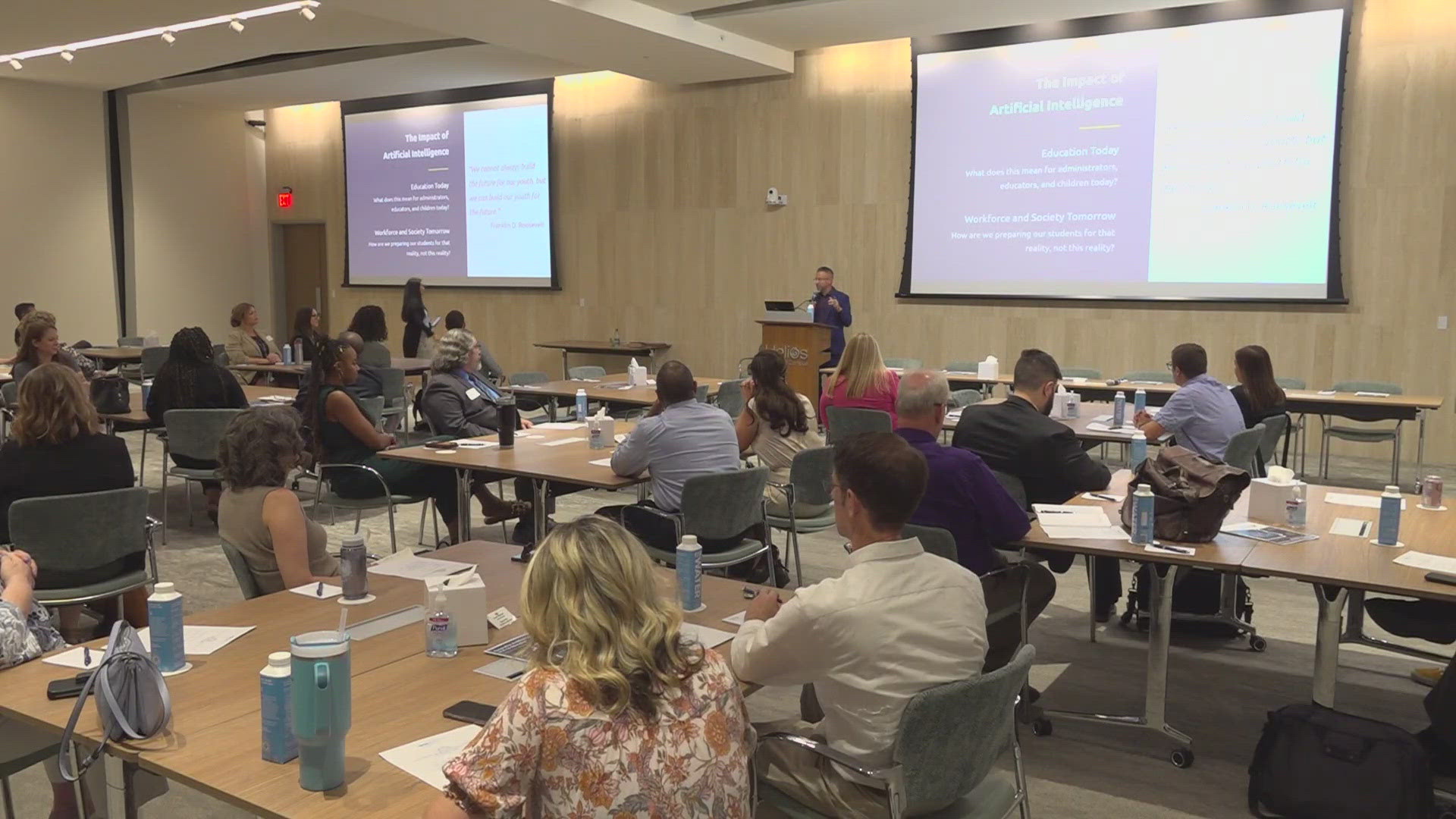PHOENIX — A group of educators and researchers has unveiled the first guidelines for artificial intelligence in the classroom.
The team, led by former Phoenix Union High School Superintendent Chad Gestson, unveiled a multipage document that lists some of the best ways to not ban, but implement and help teach artificial intelligence.
“We have to get past cheating,” Gestson said.
Gestson, now the director of the Arizona Institute for Education and the Economy at NAU, said AI services will soon be in every industry and every facet of life. Students should be taught about it now to give them a head start.
“We can’t put our heads in the sand and not think about what AI means for education in the future,” Gestson said. “We have to tackle this issue now.”
Gestson points to the emerging prevalence of AI technology in virtually every industry.
Instead of students starting to learn the technology and how to use it after graduation, they should be getting a firm grasp of it before they’re required to use it in the workforce.
The document that Gestson and his team put together gives school districts a framework for developing their own AI policies, with an eye on what the world will look like when students enter the workforce.
First, the guidelines say schools should establish an AI “steering committee, a school-specific group of people who are early adopters who can guide the school going forward.
Next, Gestson said schools should experiment with AI services instead of blanketly banning them. But, the guidelines say, schools should determine what services they’re comfortable unblocking and how they should be used.
Finally, schools should continually review their policies and guidelines as the technology changes and updates.
“The technology is always changing,” Agua Fria Union High School District’s Chief Technology Officer Lauren Owens said. “It’s about teaching the framework and how to use it with care.”
Agua Fria has its own group of guidelines in place now. Simply put, they establish when AI shouldn’t be used and when it’s allowed or even encouraged.
The district’s AI website will also compile the best practices and ideas from other districts.
“No one is an expert in any of this,” Owens said. “If it helps other districts move the needle as to how they can help their students be AI literate, then that’s the goal.”
These are only guidelines, not official policies from the state or even requirements. But Gestson said these guidelines are needed for the future.
“We think there are scary realities if we don't get AI right,” Gestson said.
Up to Speed
Catch up on the latest news and stories on the 12News YouTube channel. Subscribe today.

